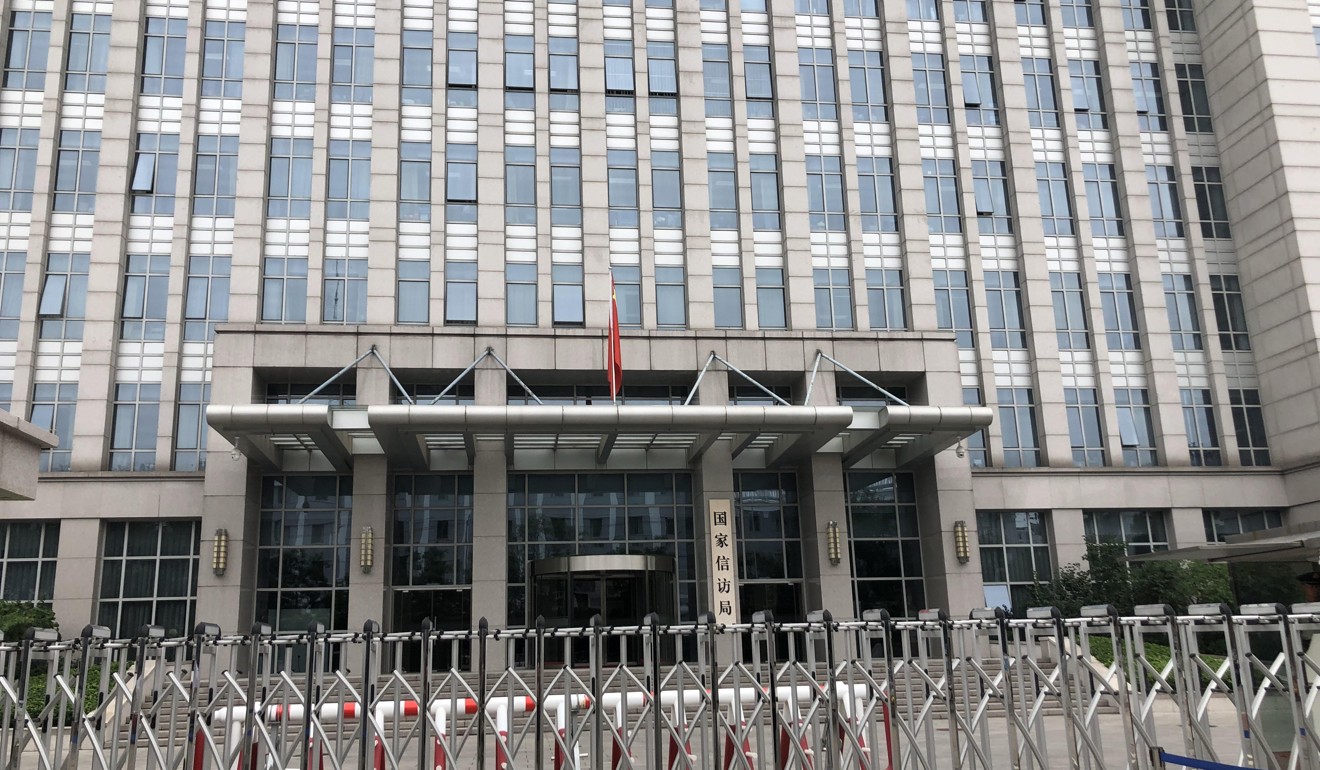
How China’s desperate petitioners are blocked from seeking justice
- Investigative report reveals illegal business of stopping petitioners from taking their grievances to Beijing
- Newspaper looked into case of Chen Yuxian, who was intercepted and beaten to death last year

A rare exposé by a Chinese newspaper has revealed the inner workings of an illegal business aimed at stopping petitioners from across the country seeking justice in Beijing.
The practice of petitioning dates back to ancient times and is often the last resort for hundreds of thousands of Chinese each year to bring their grievances – often involving local officials – to the State Bureau for Letters and Calls in Beijing, which then channels their complaints to the relevant authorities.
But those same officials often dispatch people to block, detain and send petitioners home to avoid looking bad in front of higher ranking officials.
The investigative report in The Beijing News on Wednesday looked into the death last year of Chen Yuxian, a petitioner from Shangyou county in Jiangxi province.
Chen went to Beijing to seek justice after being wrongly accused of selling fake paddy seeds in 2007. His case had been in limbo since he was released on bail.
The newspaper tracked a complex web of local officials, informers and the “petition blockers” themselves, who can make more than 800,000 yuan (US$115,000) a month by preventing citizens from reaching Beijing.

But efforts to obstruct petitioners are illegal. In 2014, the government abolished a system that ranked local authorities’ performance according to the number of petitions about them that reached Beijing. That system led to the proliferation of “petition blockers”.
According to the report, local officials send informers to fish for information at train stations and around the hotels in Beijing where petitioners are offered cheap accommodation.
Chen reportedly met Lu Jianming, an informer, while he was trying to find a hotel near the Beijing West station in June last year. Lu then passed the information on to Niu Li, who had been running a petition blocking business in the capital since 2012 and is said to be the son of a former petitioner. He spent 2 million yuan setting up a car rental company as a cover, according to The Beijing News.
Niu had the contact details for nearly every Bureau for Letters and Calls chief in the country, Liu Xiaolong, secretary of the Shangyou Political and Legal Affairs Commission, told the newspaper.
When he heard about Chen, Niu called Lai Xuewen – then chief of the Shangyou Bureau of Letters and Calls – who offered him 25,000 yuan to bring the petitioner back to the county.
The informer then offered Chen a ride to the bureau in Beijing, but they were met halfway by a group of men hired by Niu, according to the report. Chen resisted their efforts to drag him into a car and he was brutally beaten with police batons before being bound and gagged.
As they approached Shangyou, the men realised Chen was dying so they disposed of his belongings and dumped his body at a local hospital, which was unable to revive him. Chen was so severely disfigured by the beating he had to be identified with a DNA test, his son, Chen Shuwei, told the newspaper.
In May, 12 people faced a Beijing court over Chen’s murder, but a verdict has not yet been delivered. Shangyou bureau chief Lai was removed from his position but still works as a civil servant, according to the report.